Srinagar – in a flash
5. Februar 2023
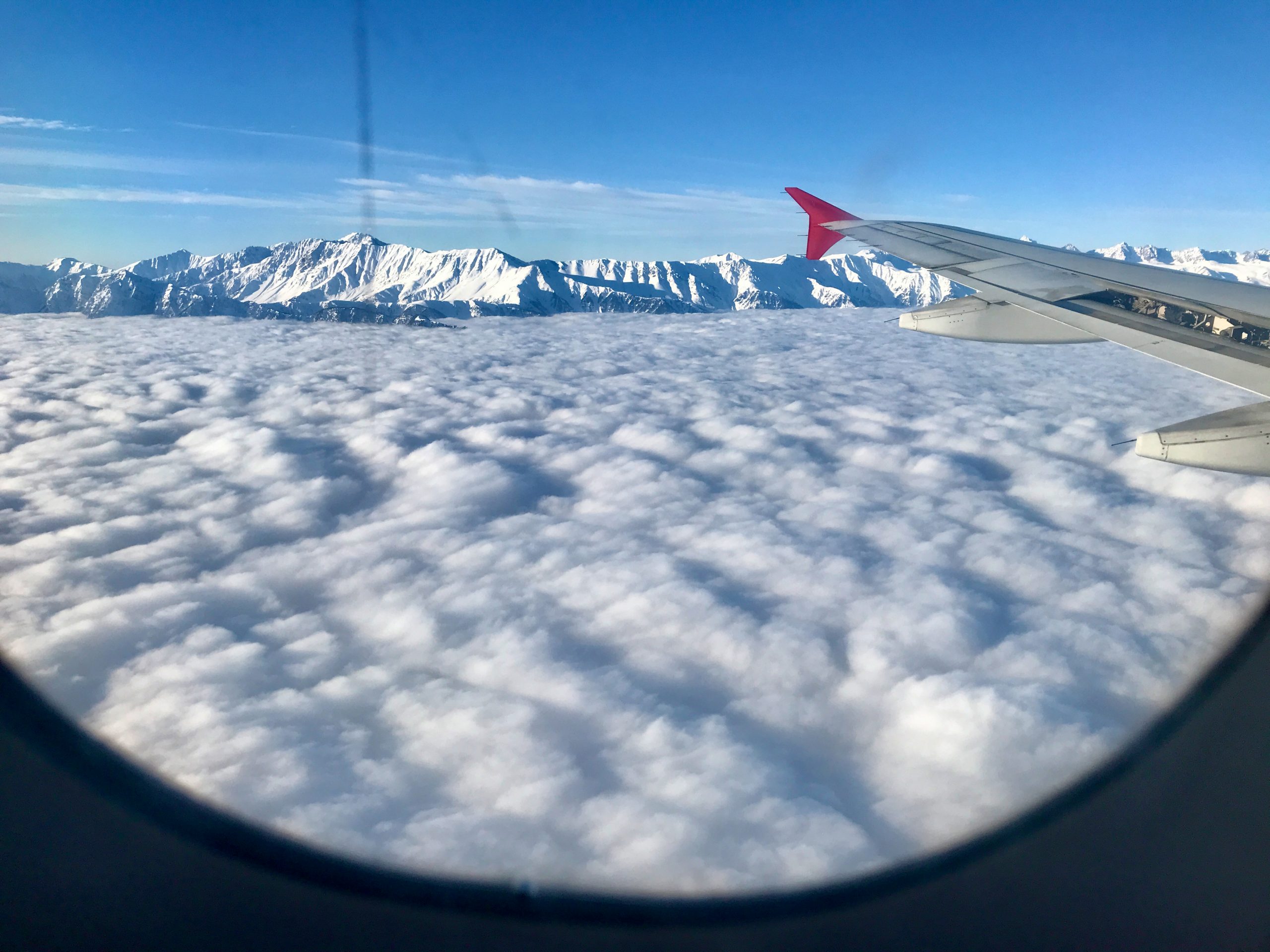
Early Sunday morning, Soenke and I jetted to the airport, flew through the blue sky and then spiralled down through the clouds to grey Srinagar. The plane was full and there was a lot of delay from a large family who didn’t have their seats close together but insisted on sitting together for the 1.5 hour flight. There was a lot of back and forth. I came to sit next to a woman with whom I immediately chatted and was amazed at who you sometimes meet. Her great-grandfather, a Ladakhi, translated the Bible into Bodhic and her grandfather or father corrected it because the language had changed. That was in Ladakh. But then they left because they didn’t really feel comfortable as missionary Christians from the Moravians. Today she lives in Srinagar in a community of about 32 families, runs a public school for all the children and her husband is a doctor with a knowledge of bones. Now they had a little holiday in Goa.
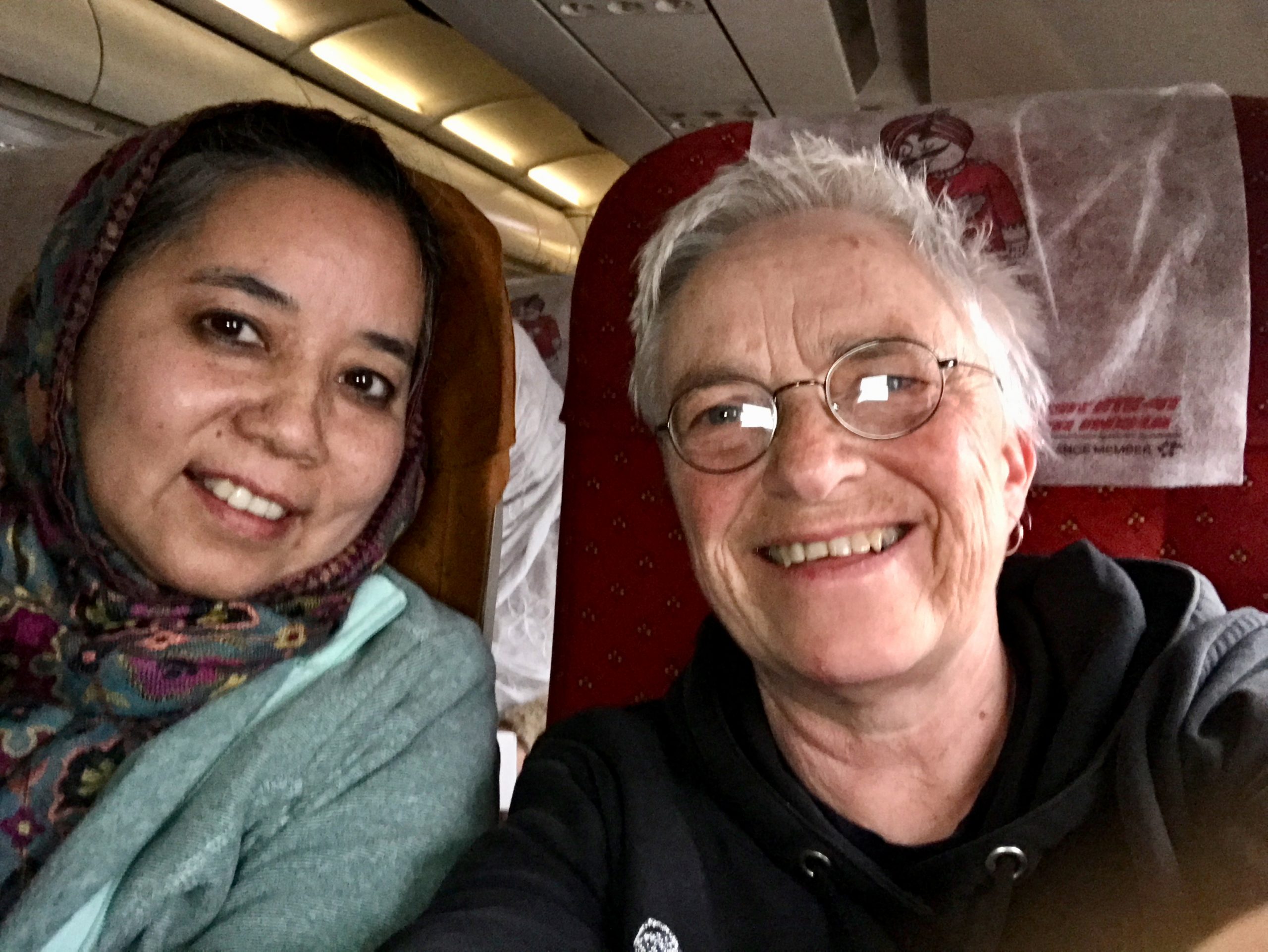 Grace and me
Grace and me
I was in Srinagar for a short time in 2008 and again in 2012 and was very curious to see what it would be like there in winter. Soenke wasn’t there yet – and so we did a little city tour.
Unfortunately, the winter was not as I imagined. I read about snow beforehand, I thought about frozen lakes (or at least partially) and the portable little ovens. Nothing. It wasn’t that very cold, I wasn’t even wearing a hat! At least it was mostly grey. As noted on the previous trip to India, people invest in painting grey urban concrete. So it was here too:
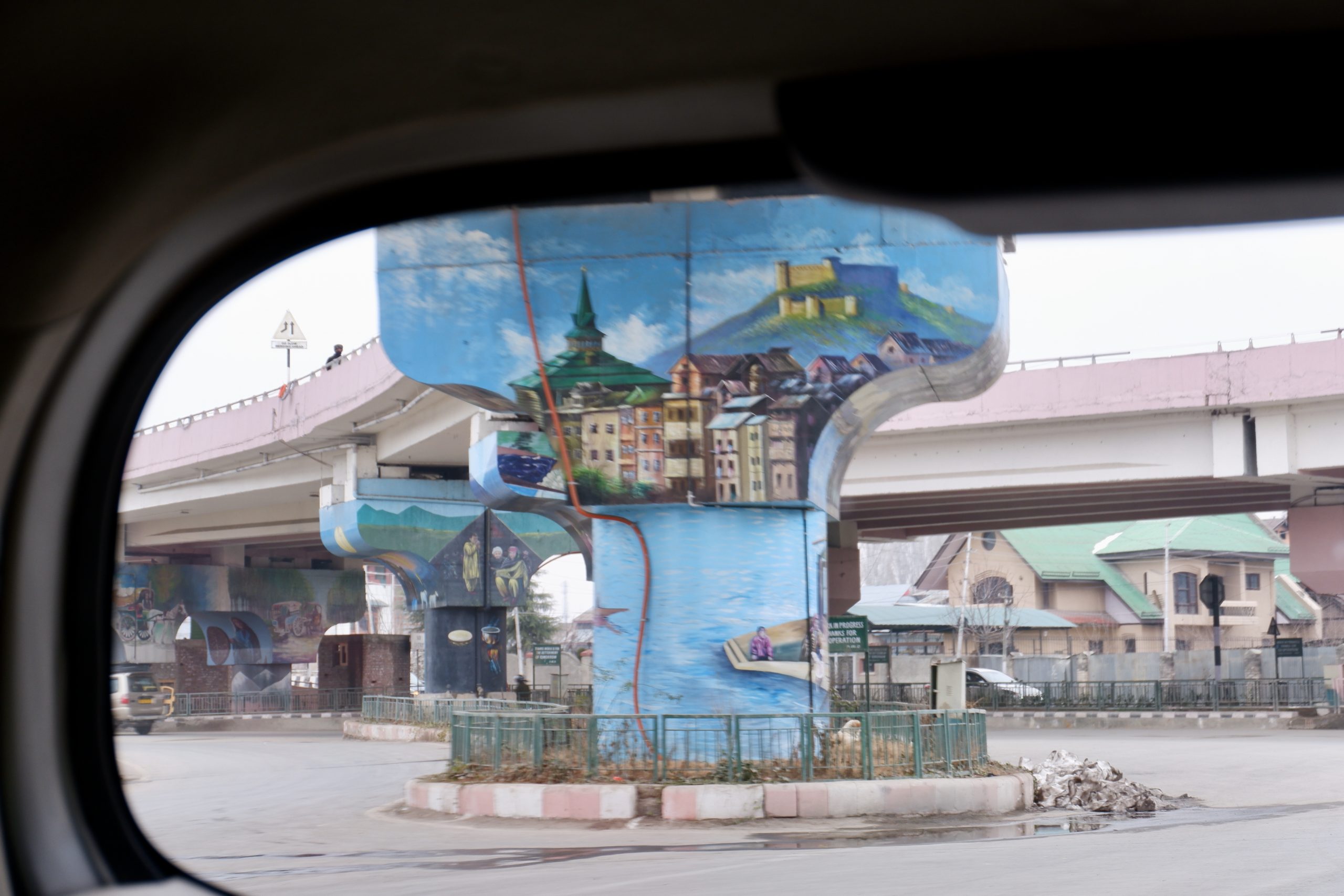 city beautification
city beautification
Srinagar has over 1 million inhabitants and a very large university. It used to be a huge tourist attraction, but due to the conflicts it was hardly visitable anymore. At the moment it is quiet again. And it is really pretty. There is a lot of water in the form of lakes, rivers and canals. This means that it also needs a lot of bridges, which looks very pretty. Here are 3 of them:
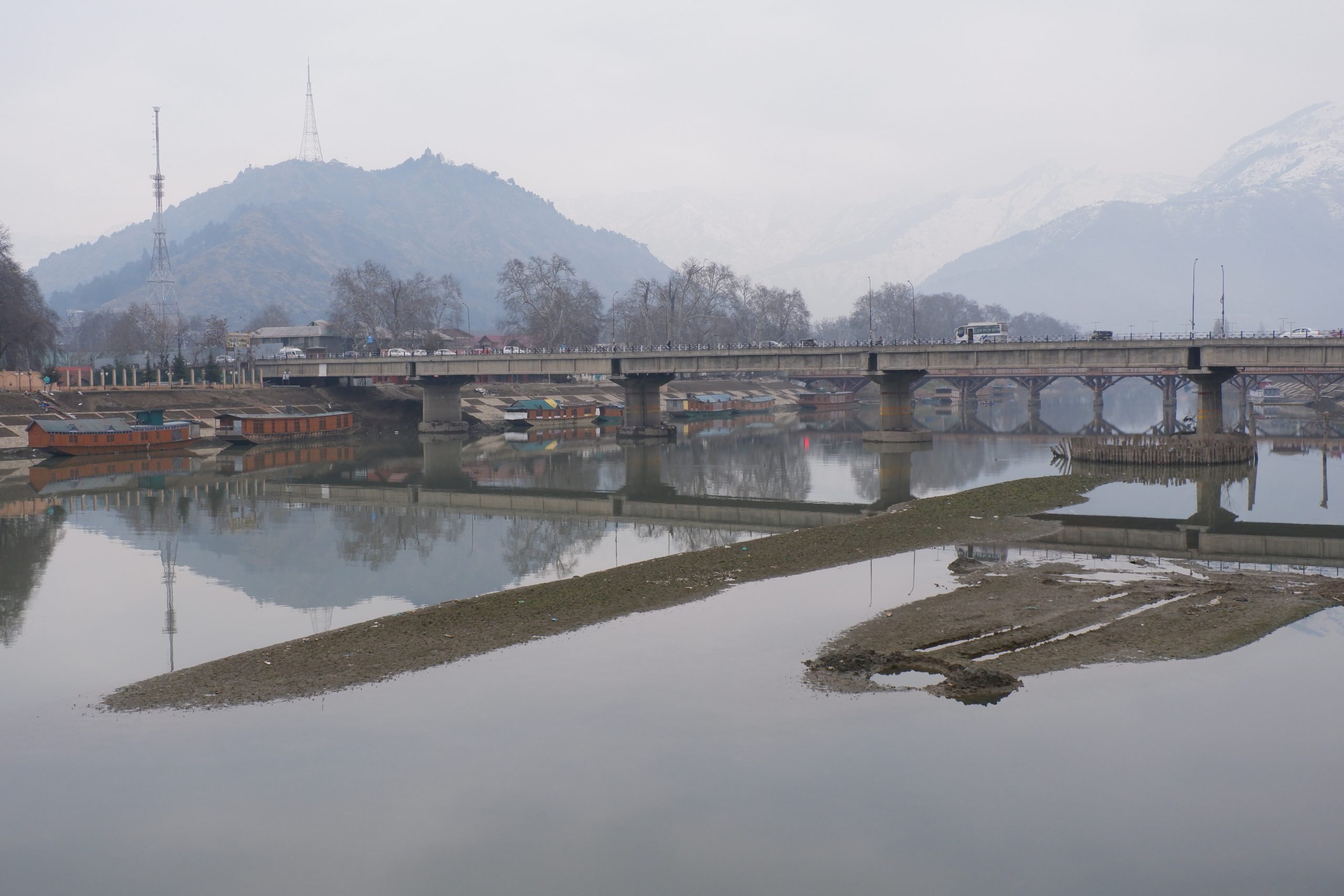 Bridge 1
Bridge 1
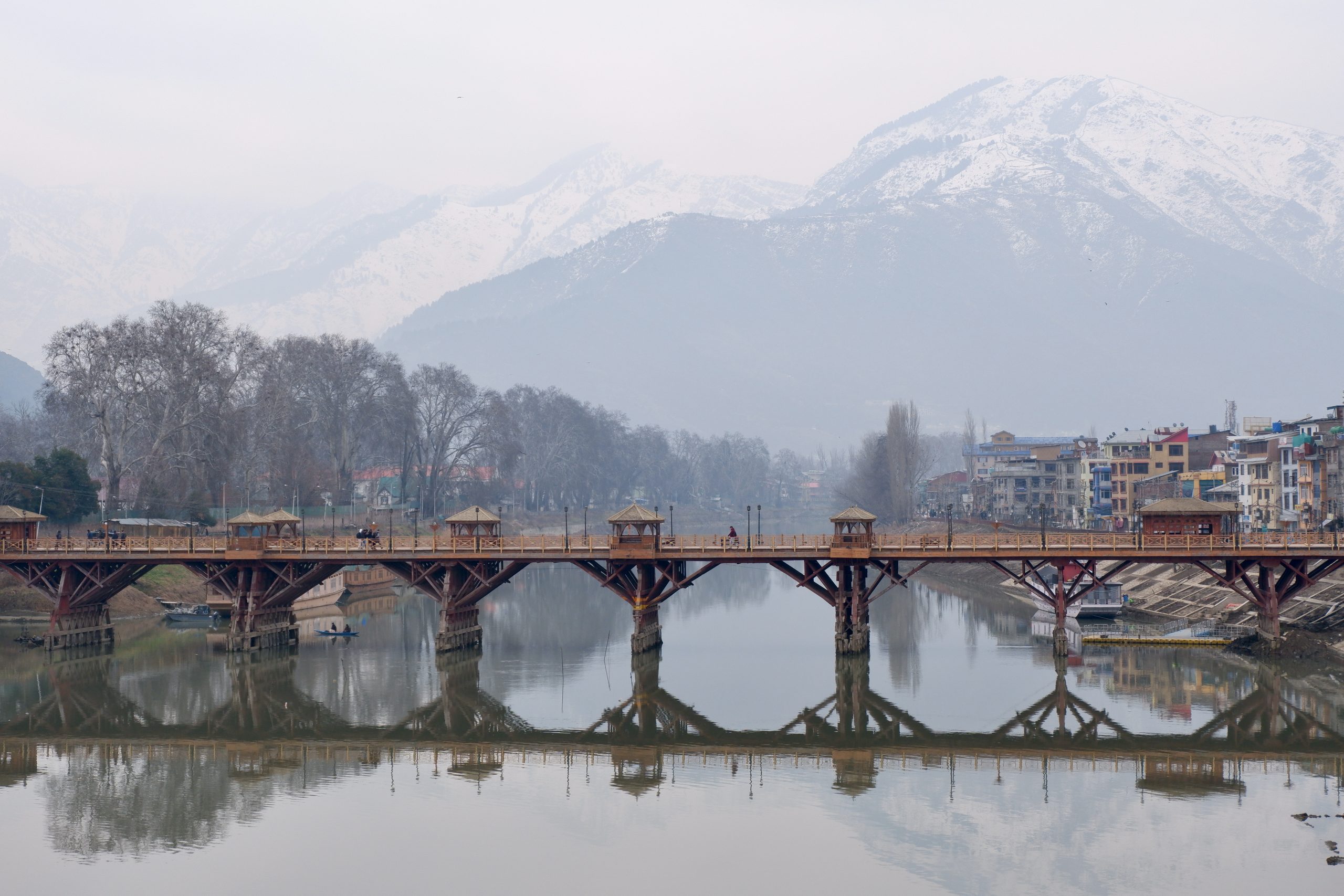 Bridge 2
Bridge 2
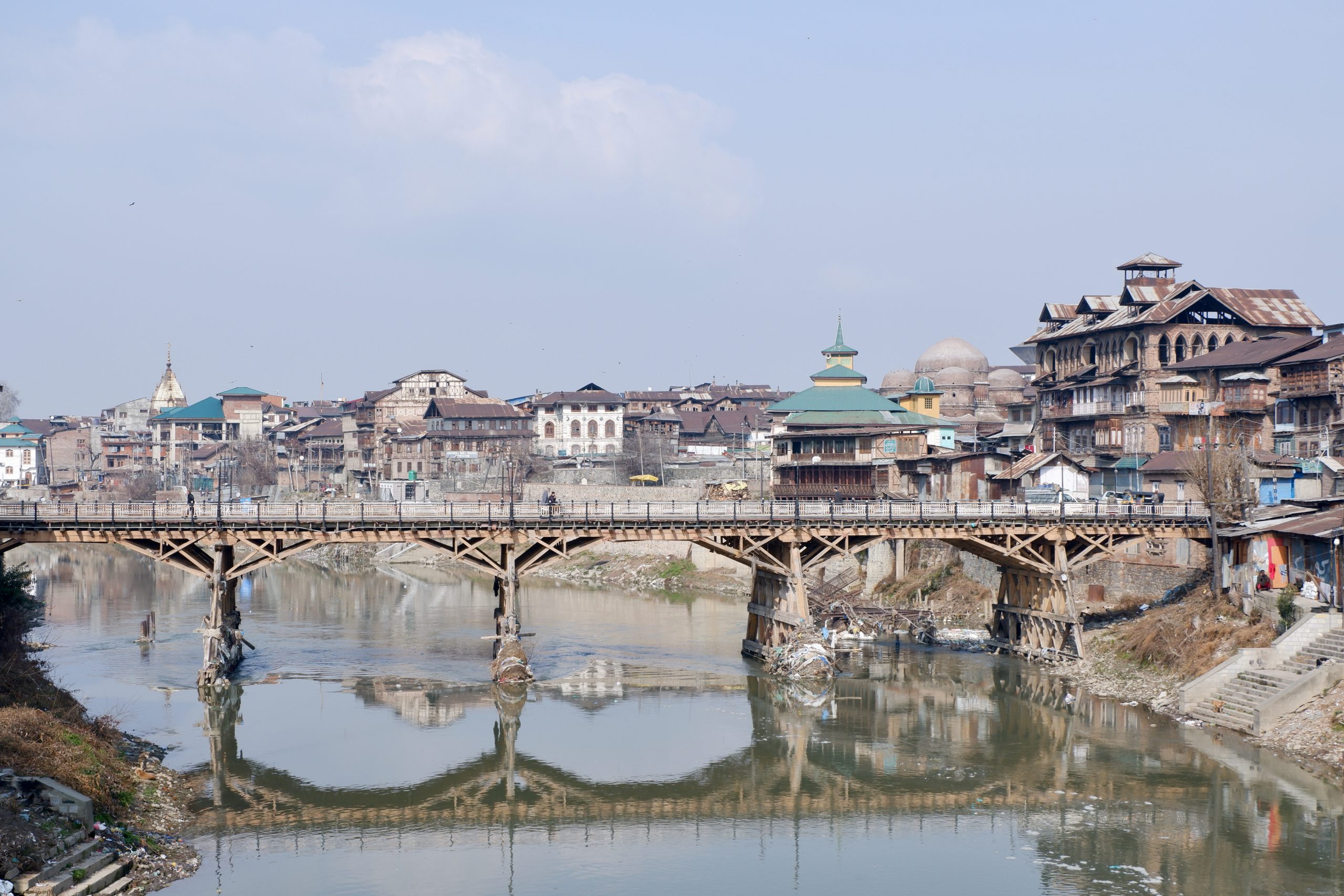 Bridge 3
Bridge 3
Then there are these lakes, i.e. the big Dal Lake and the smaller Nagin Lake. On the shores are many houseboats that serve as tourist accommodation and are usually very nicely furnished. Small boats – called shikara for passenger transport – are used to move around on the water. I thought the lakes were empty, but no, there was a lot of activity on the water. Unfortunately, there was not enough time for a tour, and the driver looked so inviting:
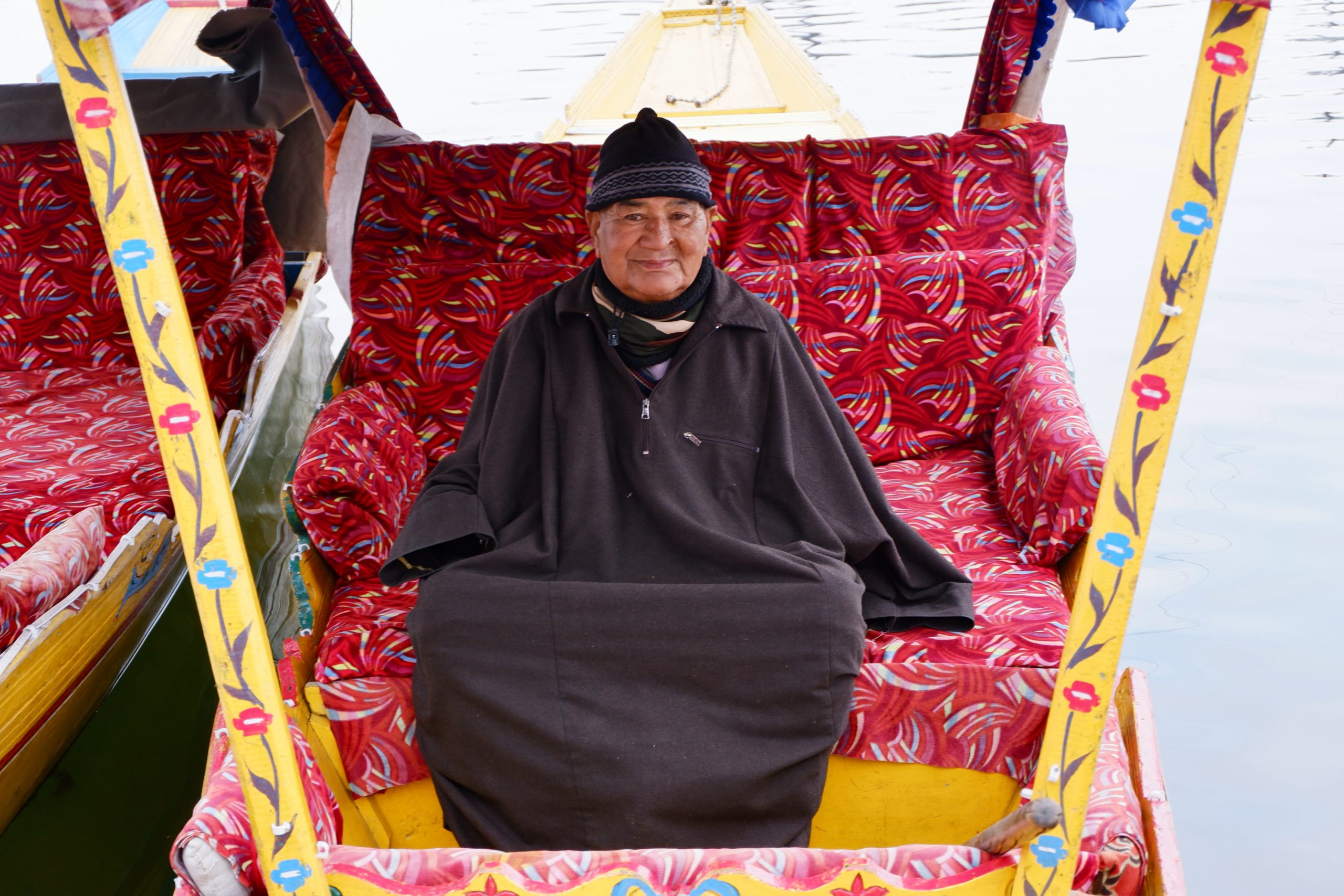 Shikara-driver
Shikara-driver
He wears a pheran, i.e. the typical winter garment for men, under which you can easily hide your little stove and always have a warm belly. We were left with only many views of the boats and the lakes:
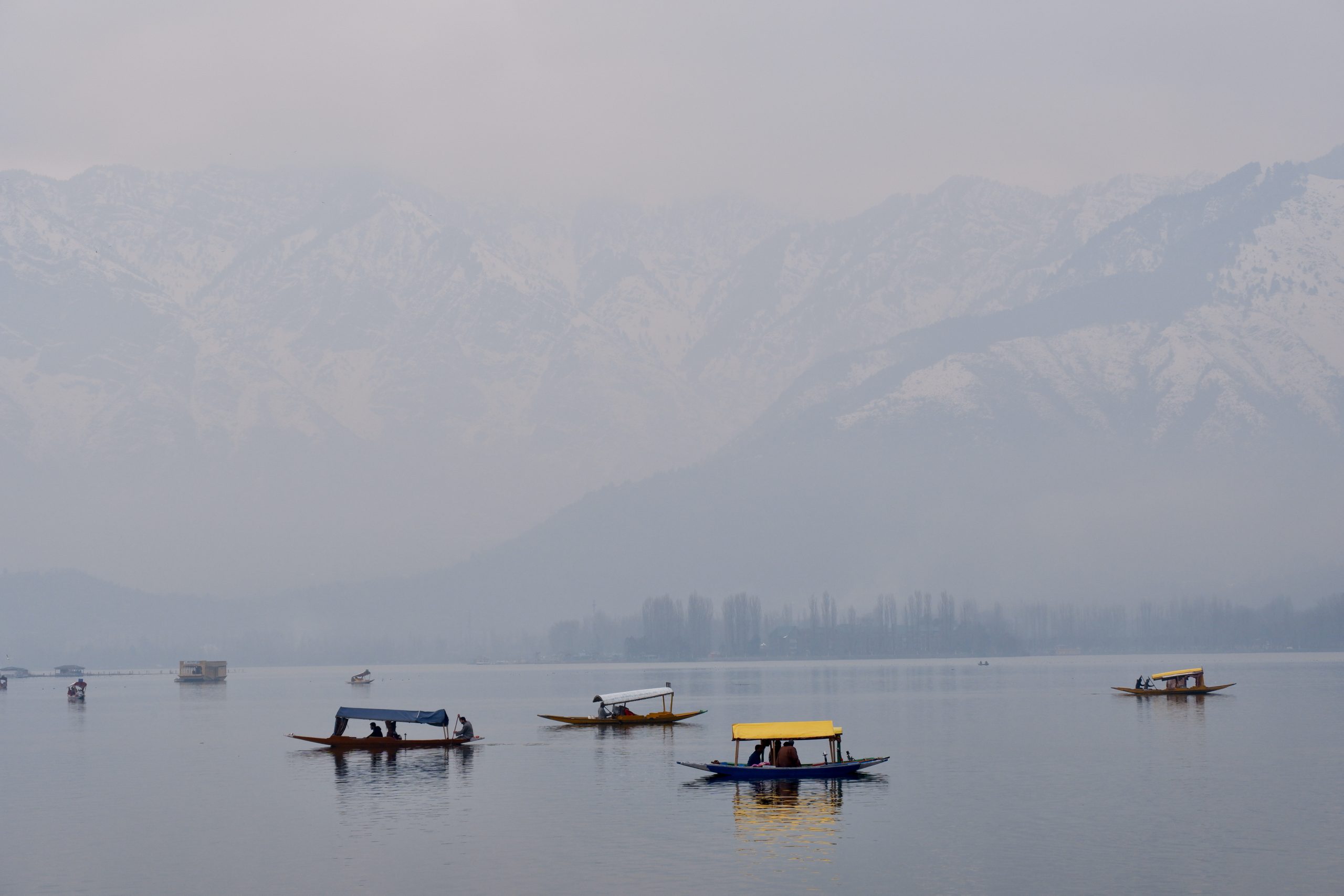 many Shikaras
many Shikaras
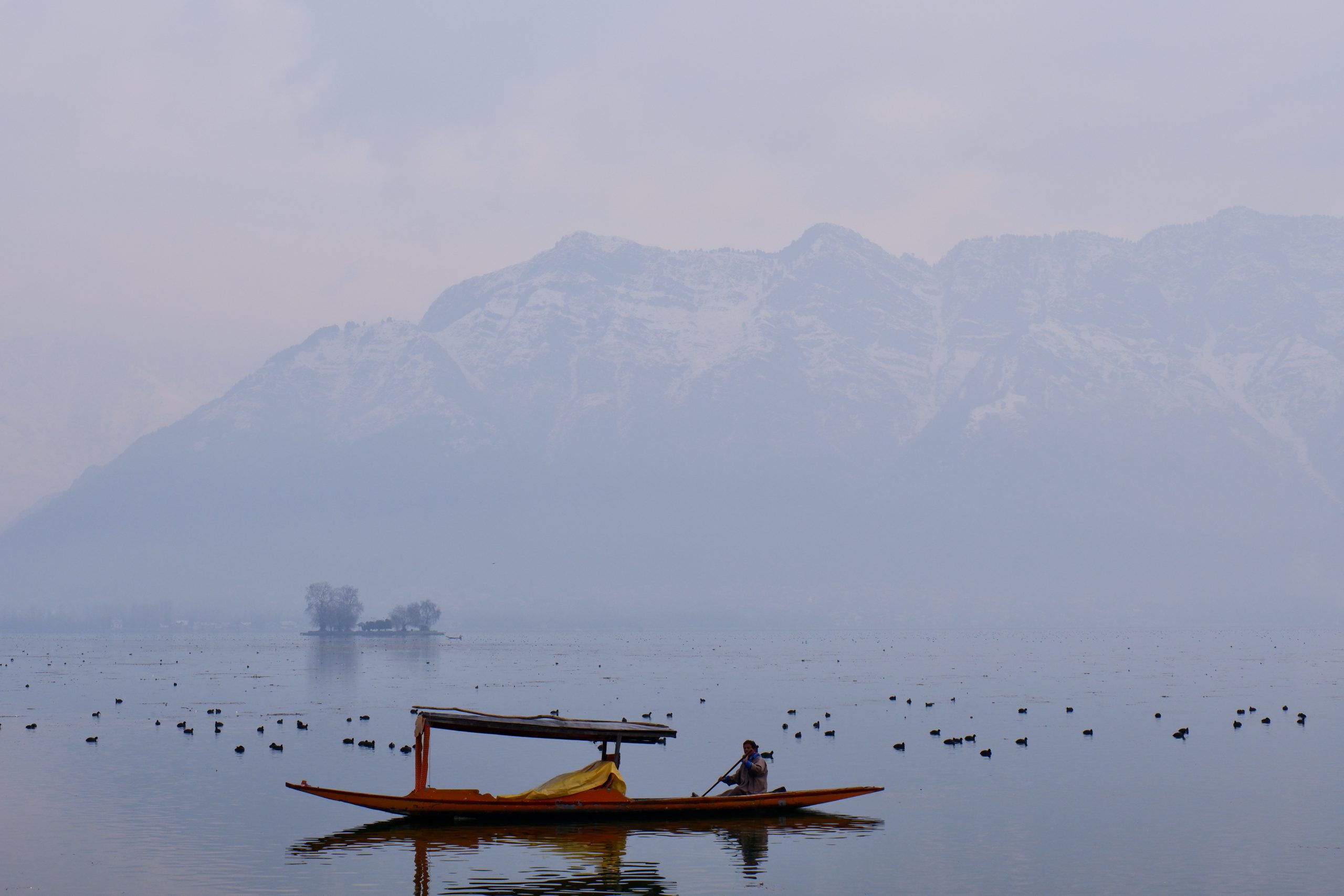 one Shikara
one Shikara
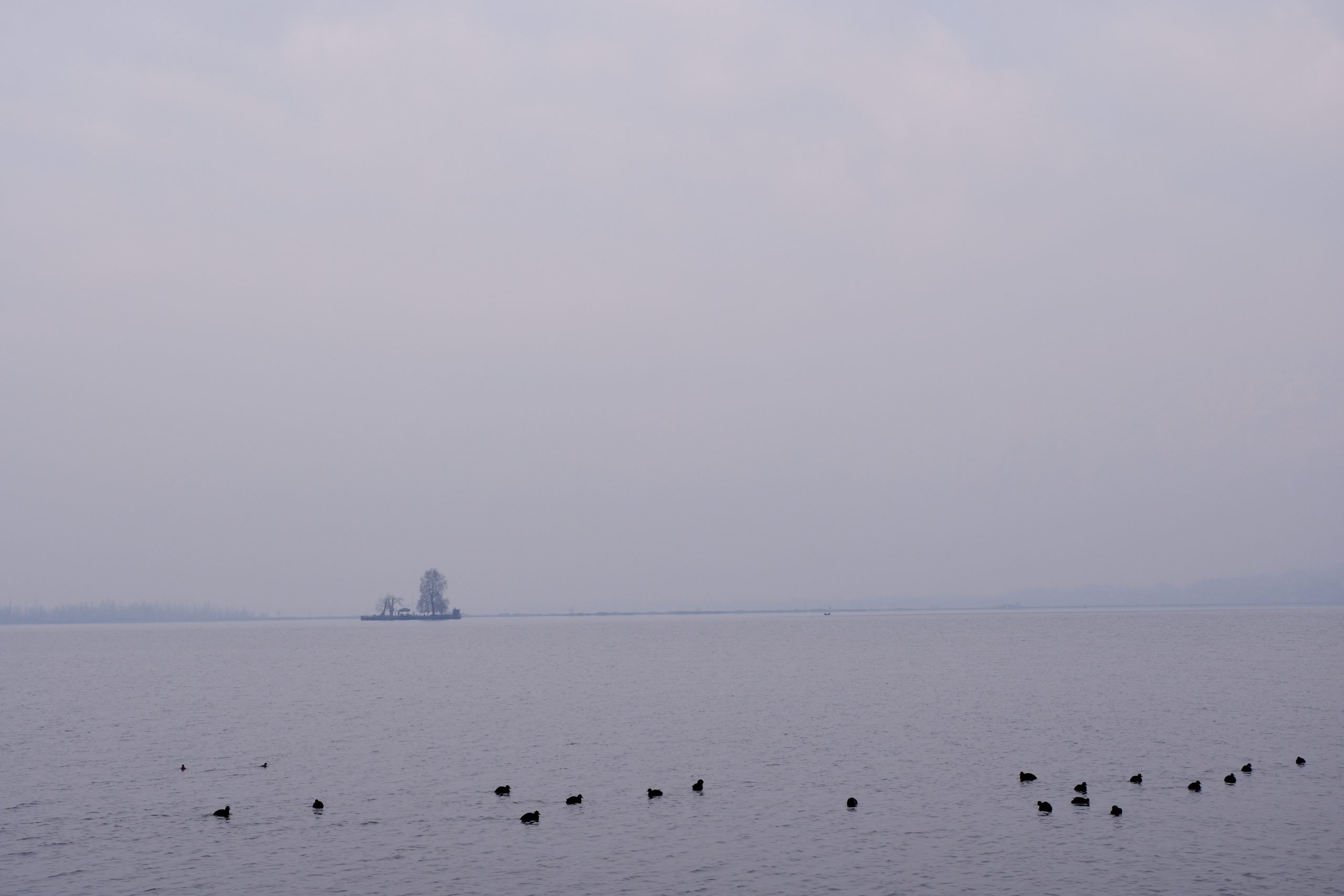 lake without Shikaras
lake without Shikaras
At the lake is also the Hazrat Bal Mosque, where a hair from the Prophet’s beard is kept. But I didn’t see that. I didn’t see much at all, because I’m female and women are only allowed in the back of a room without peepholes. But not only are women not allowed in, you are also not allowed to take a lot of things with you, which are all listed in front. We were very puzzled by the drill – who would want to carry a drill with what purpose when visiting a mosque?
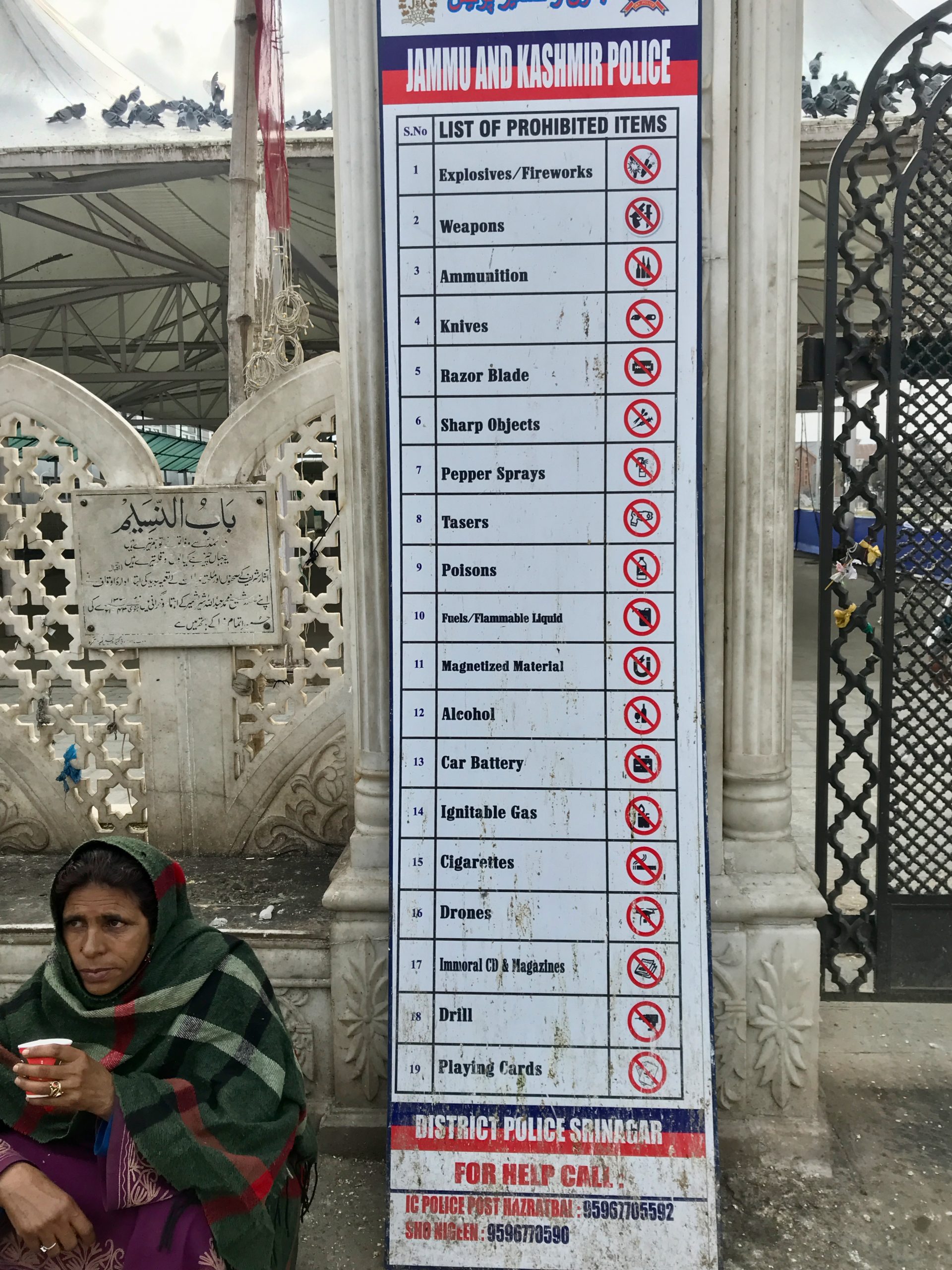 forbiddances
forbiddances
But there was something to see in front of the mosque. The people donate food and tea and when another load arrives, some are happy. We also got a little.
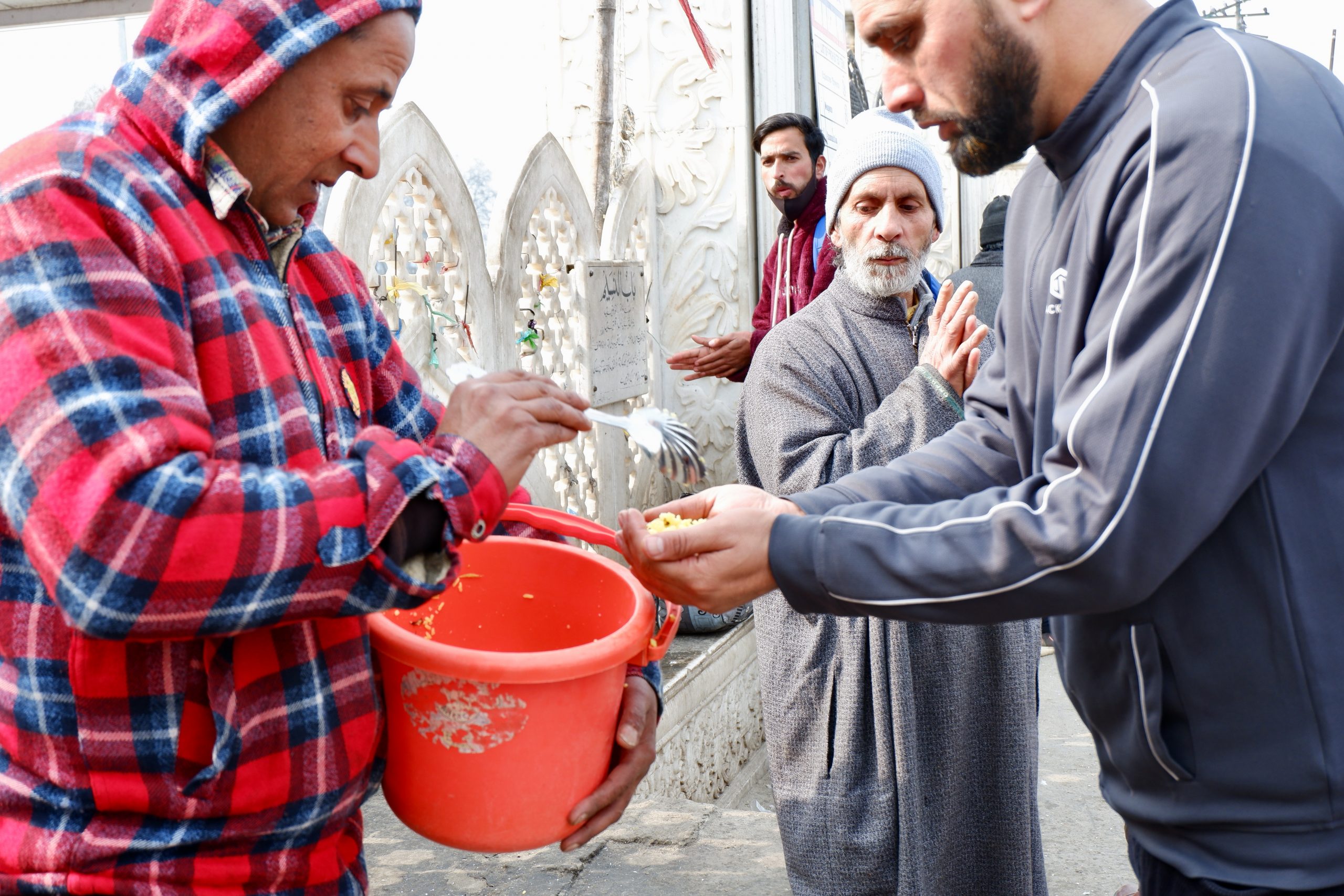 Offering of food
Offering of food
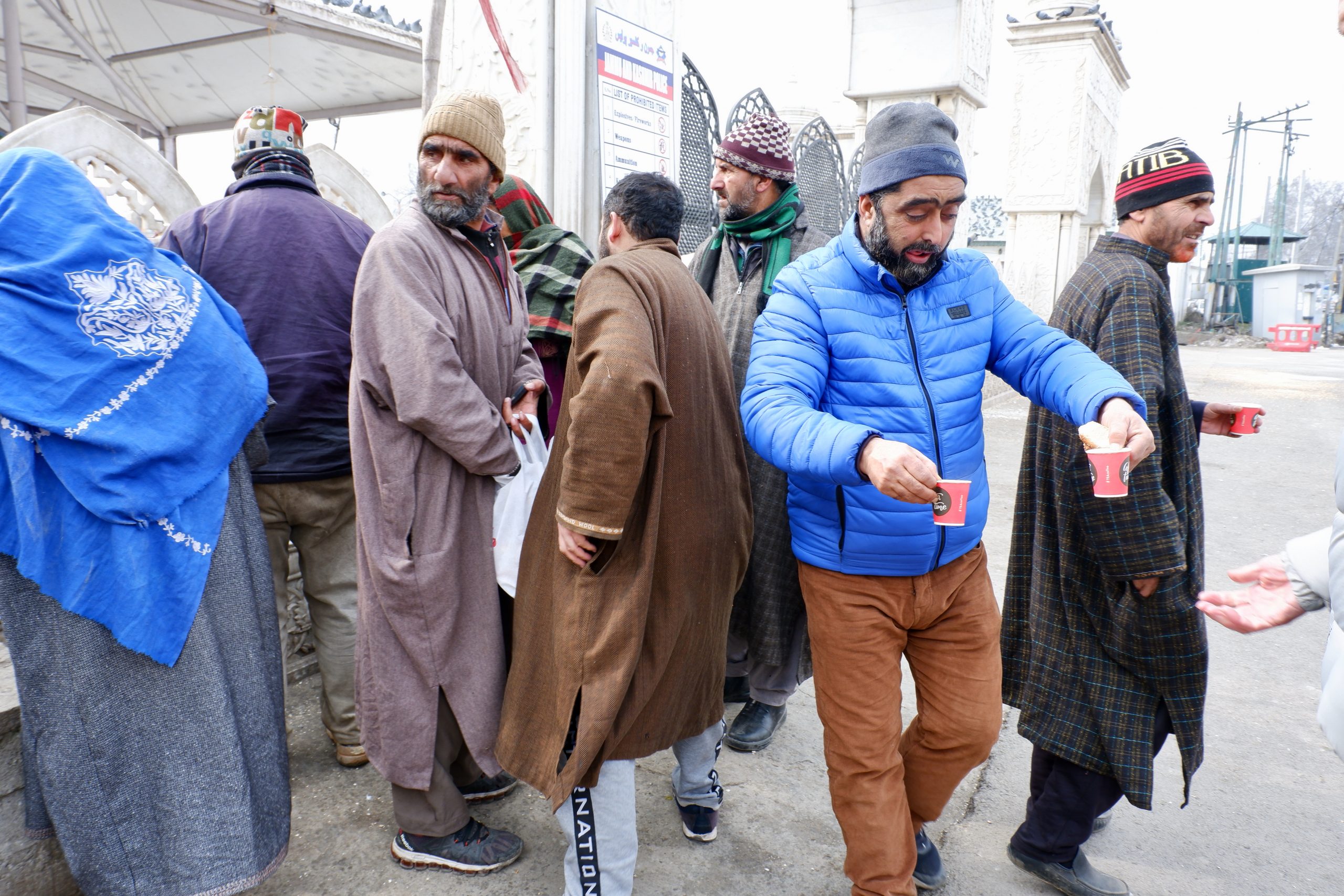 Offering of tea
Offering of tea
Then we took a mini walk in the old town. There is the most architecturally impressive mosque I have seen so far. But neither of us was allowed to go inside.
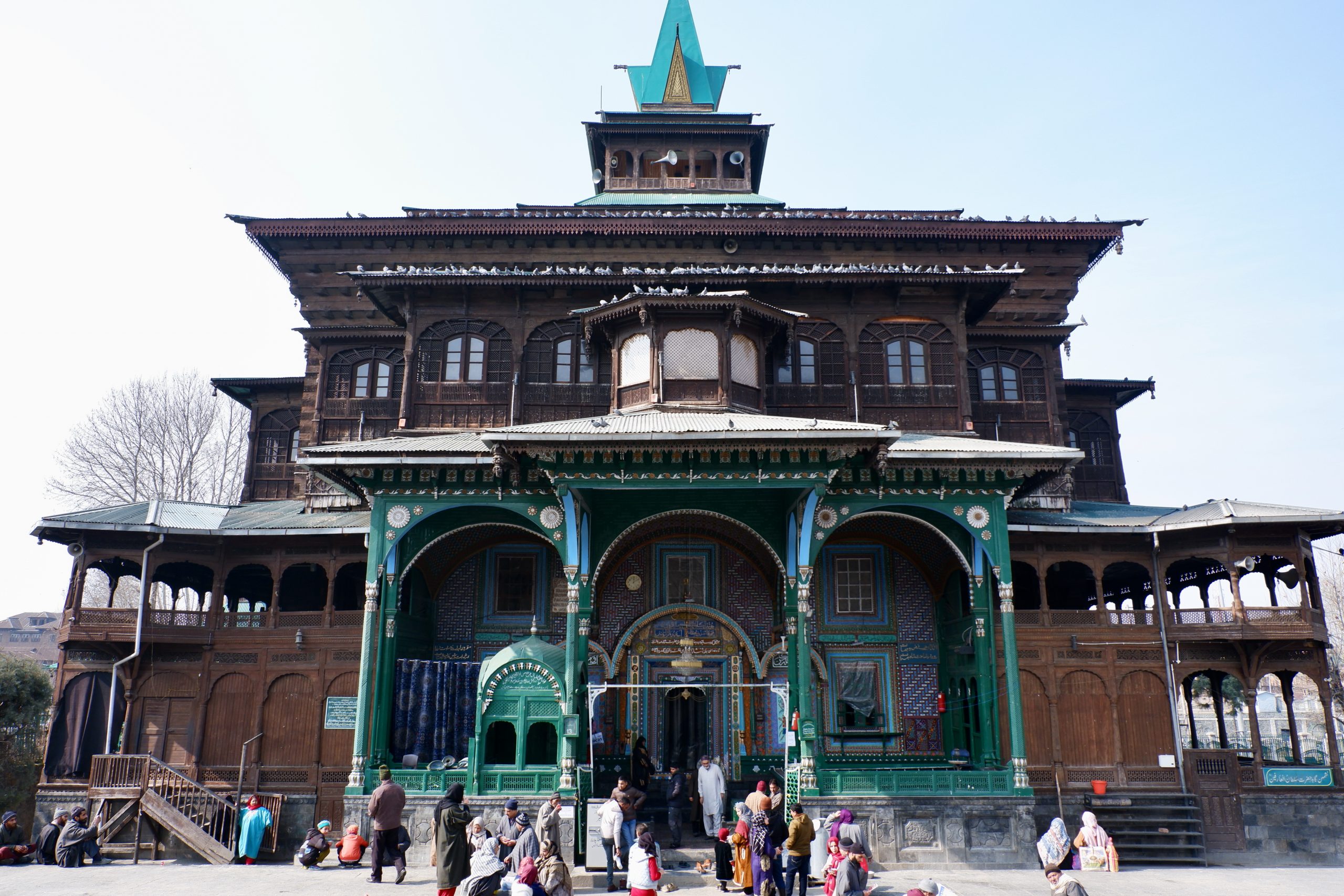 Shah-e-Hamadan Masjid
Shah-e-Hamadan Masjid
The many impressive houses we only could have a short look at either.
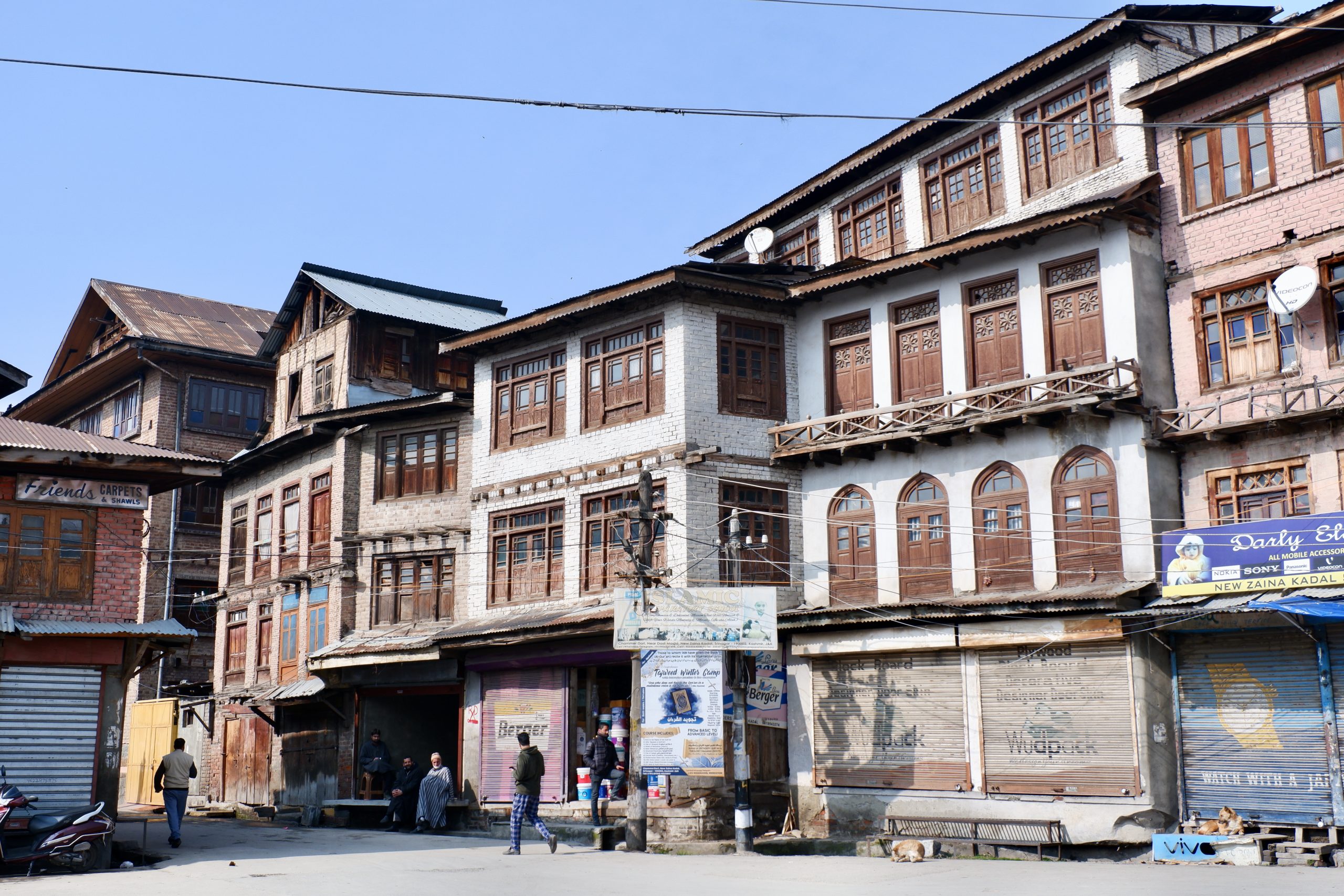 old houses
old houses
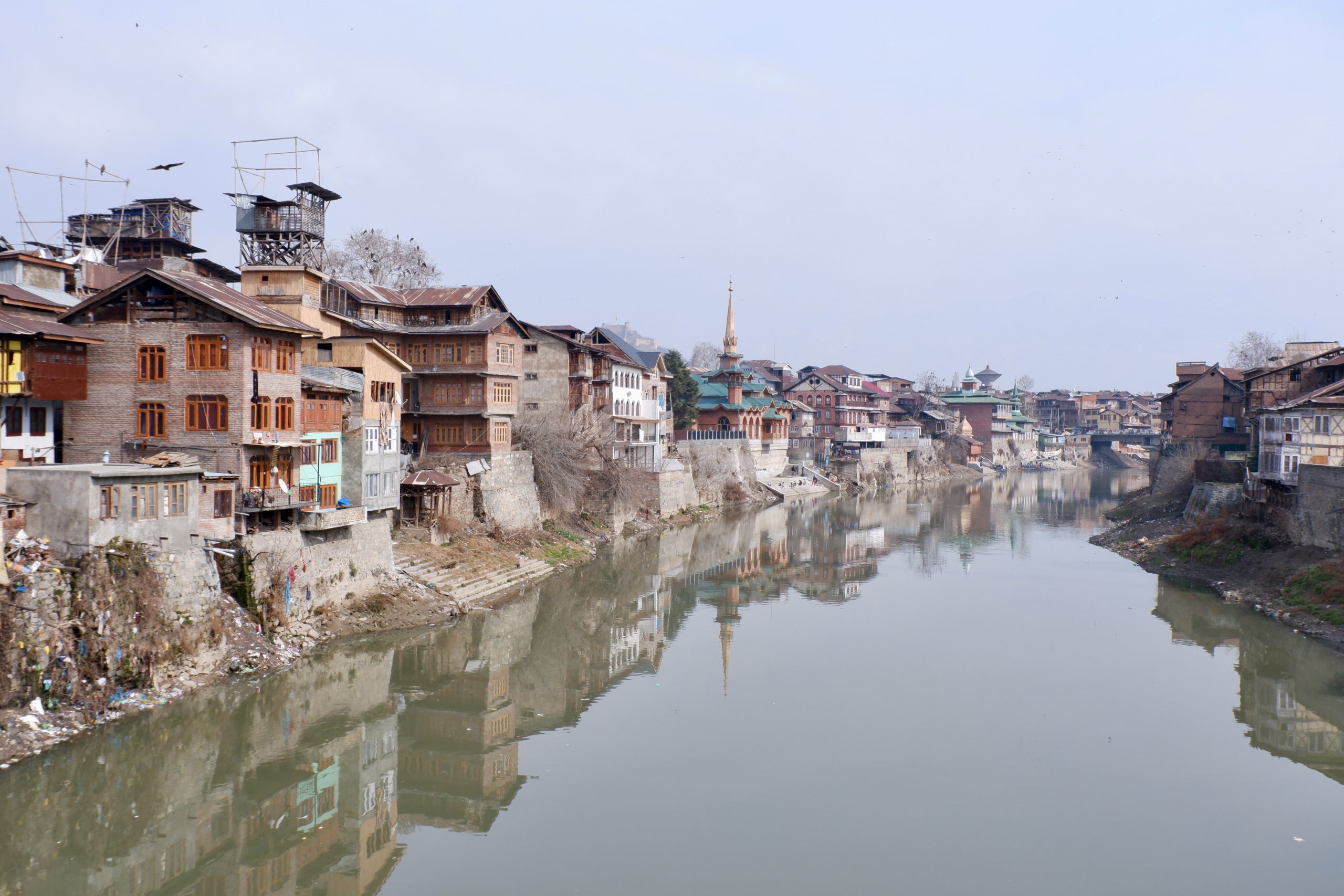 old houses at a river
old houses at a river
In 2014, there had been major flooding due to heavy rainfall, which caused quite a bit of damage. There are still remnants of it here. At least that’s what the guide said about the rubbish in the tree.
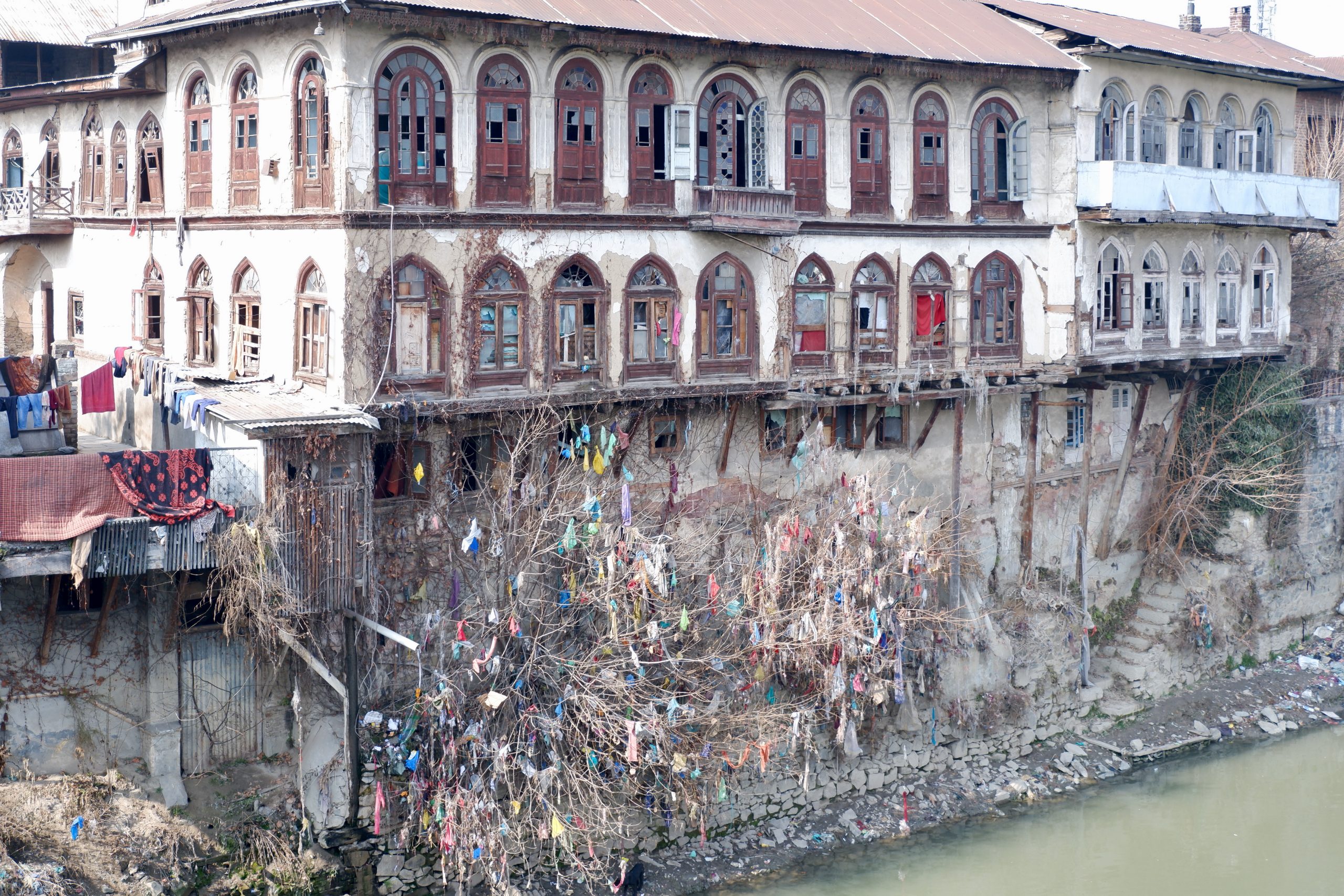 flood remnants
flood remnants
It was only a short visit and definitely made me want to stay in the city for longer and stroll around and discover many things.
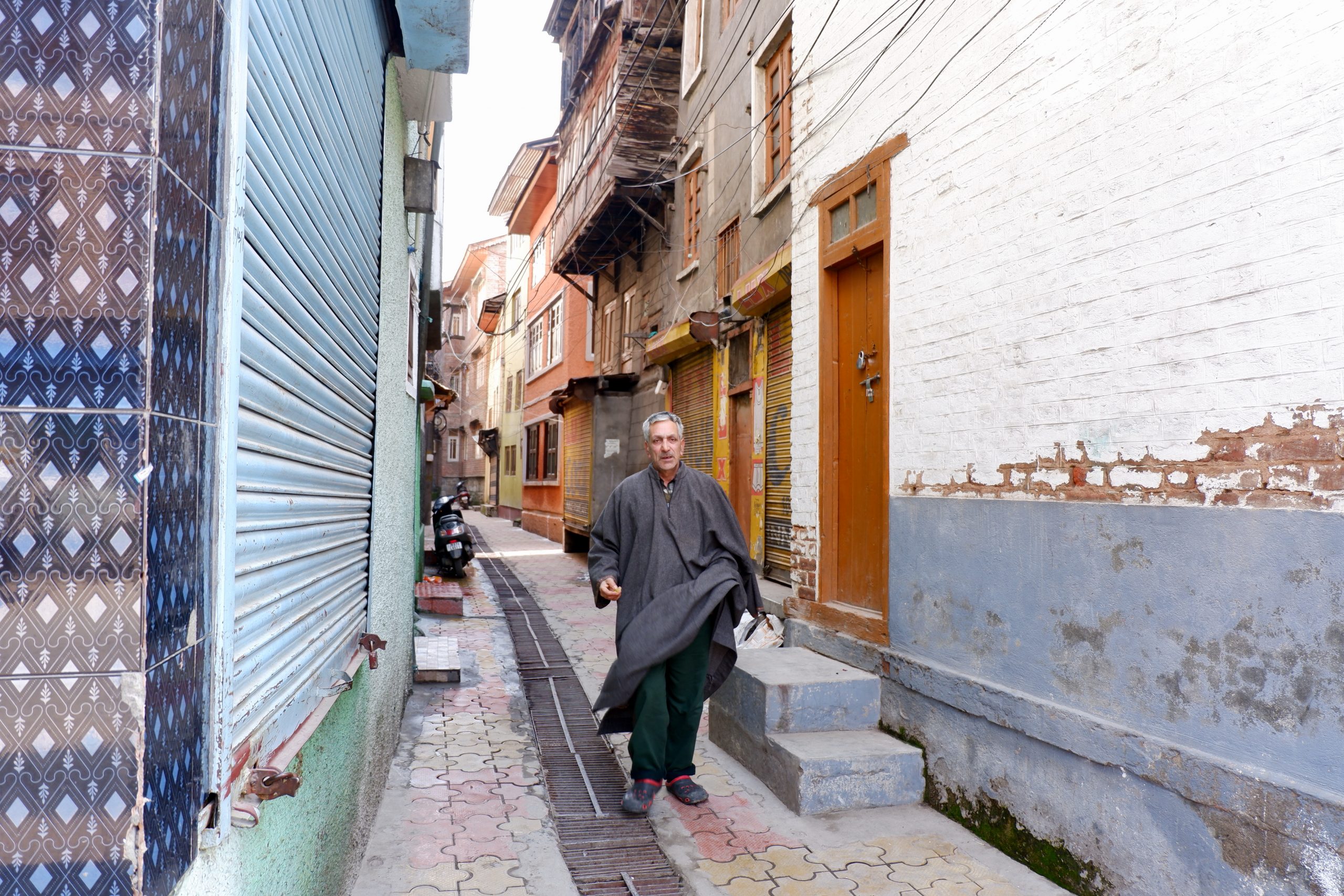 alley
alleyBut we had to go on and didn’t want to arrive too late and reach our domicile for the next 3 nights in the dark. I wonder where we were going?
